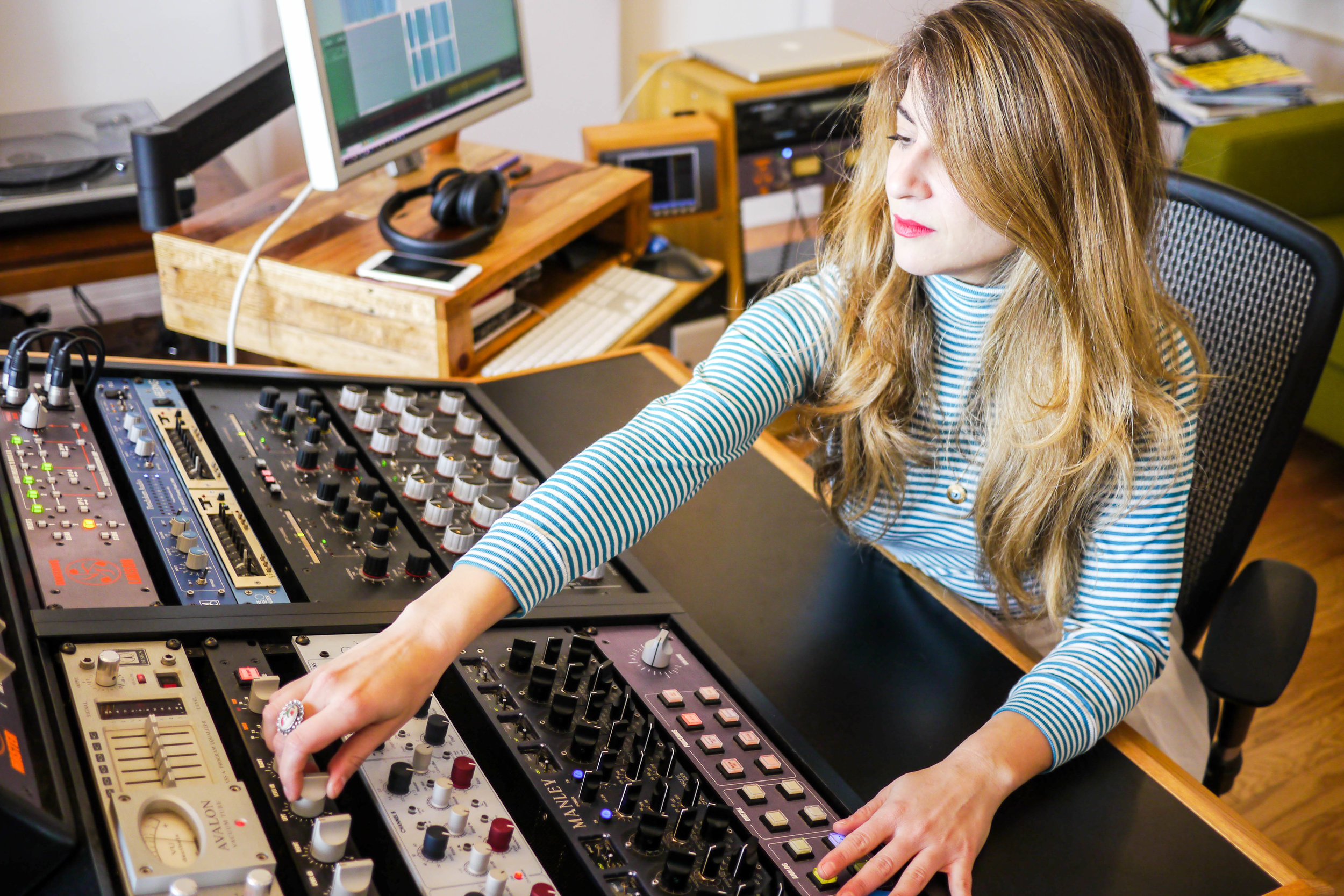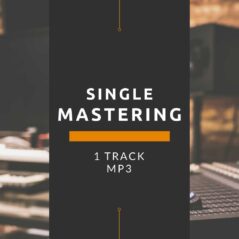What is mastering? Is it basically the same thing as mixing? Then again what is mixing and is there even a difference between the two?! Indeed there is, my friend. So, let’s discuss both to figure out why mastering is so important to the audio post-production process.

Mastering vs Mixing
As stated in the intro, mixing and mastering are not the same. Mixing is the process of adjusting and balancing the individual tracks of a song so that they all sound good together or on their own.
Mastering comes after mixing and is the last creative step in the music-making process. This process allows the final mix to compete commercially with other songs in the market and ensures optimal playback quality across all systems before distribution.
What Is Mixing?
The reason for the mixing process is to make sure everything is leveled. Let’s say that you record drums, guitar, bass, sax, etc., obviously those instruments have different frequencies. The drums might be a little heavy. Maybe the bass has some distortion. In addition to the instrumentation, you might also have vocal tracks (backing, lead, ad-libs, octaves, etc.).
Incorporating all these different tracks and making sure the important elements are highlighted is vital. For example, an audio engineer might lower the levels of the verse preceding the climax of a song to make the transition more dramatic.
This is also the time to introduce effects such as reverb or delay to make the track more interesting and contribute to the overall vibe of the song.
There’s no singular, correct way to mix a song. There will always be people who criticize music they don’t understand, but don’t let that discourage you. It’s all about your preference and your intention behind the track.
For example, Jonathan Davis, lead singer of Korn, would sometimes put effects on his vocals for a more strained, warbled sound. Unfamiliar listeners probably thought the mix could have been more structured because the effect was so extreme. But, of course, that was the point!
What Is Mastering?
As previously stated, mastering is the next step after mixing. It’s the final stage in the post-production process. This is the last chance to make any changes or correct any errors. No pressure, right? The recorded audio from the source containing the final mix is transferred to a data storage device. That storage device will then serve as the main source of production for future copies of the track.
At this stage, mastering engineers aren’t able to tweak individual tracks. They’re working with the stereo mixdown as a whole to ensure optimal playback quality across all systems and formats before distribution. This might even include transitions and song sequencing on an album.
The mastering engineer applies his own EQ, compression, etc. to the overall track at his discretion or with input from the producer. The end result is a track, or album, that is optimized for listening across all platforms. Whether you’re listening in your car, in an arena, at the club or through laptop speakers; the sound will still be uniform.
What to Consider When Mastering a Song
Where will your song end up?
Before you master a song, think about what streaming platforms you’ll be using and the appropriate loudness standard. Your song needs to be mastered on the same, professional level as similar tracks otherwise you will stand out in a bad way. Check out the SoundCloud Mastering FAQs page for more details on mastering with their particular platform.
Have a Reference Track
Don’t underestimate the power of a reference track as they will serve as a guide to achieving your desired sound. Let’s be honest, mastering can be a difficult concept to understand much less explain. Therefore, if an artist provides the mastering engineer with a reference track, it will increase the chances of achieving the desired result.
Use 3 Basic Tools: EQ, Compression and Limiting
The EQ will make a song sound more pleasing or balanced as far as frequency goes. It’s basically a group of filters that allow you to shape the tone of your song.
Compression reduces the difference between the loudest and softest parts of your song also known as the dynamic range. This makes the loud parts quieter and the soft parts louder in a subtle manner that is undetectable to the listener.
Limiting is the last and arguably most important step in the mastering process. A limiter is essentially a compressor with an infinite ratio. Its purpose is to get your final mix up to commercial loudness to compete on the streaming and radio level. (Vinyl and CD level if you’re old school).
Keep the Mix in Mind
The mastered version of a song should always sound better than the unprocessed mix while staying true to the artist’s intent. Sometimes a mix will require significant alterations and other times it won’t need much additional processing at all. Whatever the case may be, the mastering engineer’s job is to simply optimize the mix, not drastically change it to match their own preferences.
Conclusion
There’s certainly much more that can be said about mixing and mastering but at least we can confirm there is a difference between the two!
Mastering is a complex process that requires extreme attention to detail, a golden ear, and an affinity for sound. It requires creativity but there’s a lot of science that goes into it as well to achieve the perfect balance.

This highlights why mastering is so important, not just to provide a clear polished sound but also to gain the expertise of an additional music professional. Indiy gives you access to music industry professionals that provide mixing and mastering services at an affordable rate.
Definitely worth the investment if you’re ready to take your mix to the next level and compete professionally with other artists in your genre!
DO YOU MAKE MUSIC? THE INDIY MISSION
Indiy exists to help people create great music!
Did you know 40 thousand songs are uploaded to Spotify every day!
We want to hear about what you do, what makes you special and share it with the world!
Submit to be interviewed for Indiy Spotlight, its 100% FREE Just click here for your music interview
If you are working on new material, we have partnered with Audio Mastering to offer mastering on your next release from just £2 per song (approx $2.75 USD) - Check the offer out here
Search all articles
Nia
Nia is a classically-trained musician with nearly ten years of
professional experience. She studied music performance for one year at
Georgia Southern University before ultimately pursuing a degree in
public relations. Combining her passion for music and knowledge of media
relations practices, Nia aims to provide musicians with the know-how to
become successful in the music industry. Stay tuned!
Follow Indiy












